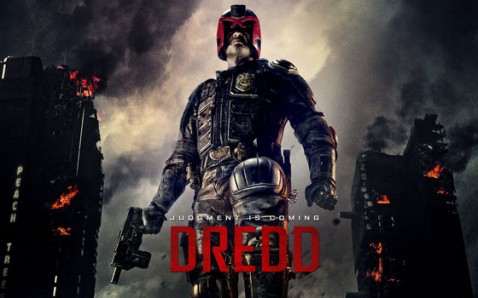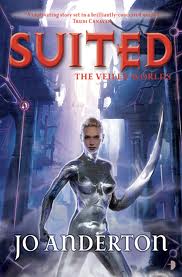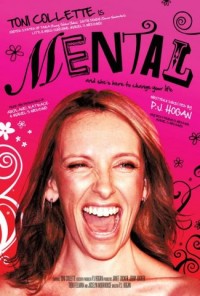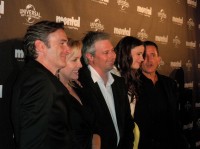It’s judgement time – Dredd 3D
Set in a futuristic American wasteland, Dredd explores a world over-run by criminals. The only justice available comes in the form of street cops called ‘Judges’ who act as judge, jury and, if need be, executioner. In the violence of Mega City One, Dredd (Karl Urban) is the Judge to be feared, dispensing judgement with clinical proficiency.
When he is teamed up with rookie, Cassandra Anderson (Olivia Thirlby), and takes on a triple homicide in a usually Judge-free neighbourhood what at first seems to be a standard job becomes something far more sinister. The deaths are linked to Slo-Mo, a new drug that slows reality down for its users. It, and the turf that Dredd and Anderson have entered, belong to sadistic crime-boss Ma-Ma, and she will stop at nothing to make sure neither of them leave her neighbourhood alive.
The premise of Dredd was fantastic and director, Pete Travis, has manipulated it to its full potential. The neighbourhoods in Dredd’s world are super-structure buildings, encompassing hundreds of floors with each floor accommodating possibly dozens of families. The whole building lives in fear of Ma-Ma and her clan and so, once the building is under lock-down, Dredd and Anderson are utterly on their own.
Casting was probably the most important aspect with this film. Though there was not large cast, each of the actors was evidently chosen for how well they worked together. On their own, the cast shone; but when acting alongside each other, the push and pull of the interactions, both spoken and unspoken, resonated. Dredd’s character is set in stone, unwavering and seemingly incapable of seeing grey areas. The contrast between him and Ma-Ma, who is coldly calculating but thrives on the pain around her, is palpable. While Ma-Ma is demonstrative, making a spectacle of the devastation she unleashes; Dredd is understated, economical in action even as he wreaks his own brand of destruction. There are no similarities between the characters but, as enemies, their chemistry runs in perfect synch.
Anderson plays a much different role in the film, giving the audience a point with which to sympathise. Young and empathetic, she has all of the emotions that Dredd does not, and that makes her essential. While Dredd does undergo character development, his personality is too inflexible to make a drastic change. Anderson’s, however, is not and much of the emotional journey (including Dredd’s emotional journey) is facilitated by her.
As can be expected, there is an incredible amount of violence in Dredd. While carnage doesn’t usually bother me, in Dredd it did. The reason for this is that the brunt of it, both physical and mental, was used by Judges against Kay (Wood Harris), a black character, and it could be described as torture. He’s a bad guy for sure, but while police are still beating and killing people for not being white, this hits too close to home.
Visually Dredd is a pleasure to watch. The setting is gritty; giving the film an authentic atmosphere of a desperate and uncertain future. The contrast of this against the immaculateness of the Judges’ uniforms and bikes signifies the role they play in bringing order to the city. While these things add to the film, the treatment of special effects is the thing that I found most inspired. As the characters are tailored to enhance each other; the plot in Dredd is tailored to suit the effects. Slo-Mo, the drug that slows time down, is used to great effect during action scenes, adding dimension in a plausible way.
Based on the iconic Judge Dredd comics, Dredd is a dark and uncompromising film that will leave audiences hoping for a sequel. The plot, characters and even special effects are woven together to make Dredd a brilliantly multi-layered experience that is as visually stunning as it is entertaining.







































